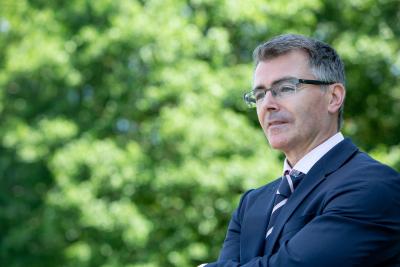INVESTORS MUST NOT PANIC OVER CORONAVIRUS EFFECT, AND NEED TO KEEP LONG-TERM VIEW, SAYS LEADING FINANCIAL PLANNER

Investors worried about recent investment market falls due to fears surrounding the coronavirus need to think long-term and not make knee-jerk reactions to short-term market shocks – that is the advice being given by a leading Norfolk financial planner.
David Haughton of Lovewell Blake Financial Planning says that despite headlines over the past few days about global stock markets suffering big daily falls, it is important not to panic.
“The human aspect of the virus is obviously the most important thing, but inevitably investors are also going to be worried about their portfolio,” said Mr Haughton.
“The outbreak had an immediate impact on the Chinese economy, and with China being a crucial part of the world’s supply chain, it is inevitable that the rest of the global economy would suffer in some way.
“Many goods around the world will contain at least one part made in China, and so if Chinese factories are forced to shut down, companies across the globe will feel it. In addition, sectors such as tourism may well take a hit – although that may be offset by a growth in ‘staycations’ as Brits may decide not to travel until the crisis is contained.”
With an increasing number of countries now discovering new cases every day, Mr Haughton says that the economic impact will also be felt on an international basis.
“Nobody knows how long the crisis will last, it could blow over in a few months, or we could be in for the long-haul,” he said. “Whatever happens, investing should generally only be for the medium to long-term, so if you have a sound strategy, fully diversified in relation to your risk/reward profile, it’s important not to panic.
“Selling completely out of that strategy because of short-term movement in the markets might be a bad move. You could miss out on a recovery and potential long-term gains.
“Diversification is a key factor, and this has been proven in recent days. Whilst global equities have taken a beating, government bonds and precious metals have generally seen an increase in their values. This emphasises the virtues of not having ‘all your eggs in one basket’.
“It would seem inevitable that, in the short-term at least, we will continue to see market turbulence due to the coronavirus. Having a sound, well-diversified, investment strategy could help you to ride this out, paving the way for longer term gains.”
Mr Haughton draws a comparison with the SARS outbreak in 2003. Although there were fewer cases, there was a higher mortality rate – based on figures to date – and there are similarities in the way the market reacted.
“In that instance, markets began to recover relatively quickly and once the outbreak had passed, the various economies rose swiftly to pre-outbreak levels. Of course, nobody can predict how this current crisis will play out, but the main thing is for investors not to be panicked by screaming headlines, and to keep a level-headed, long-term outlook.”













































